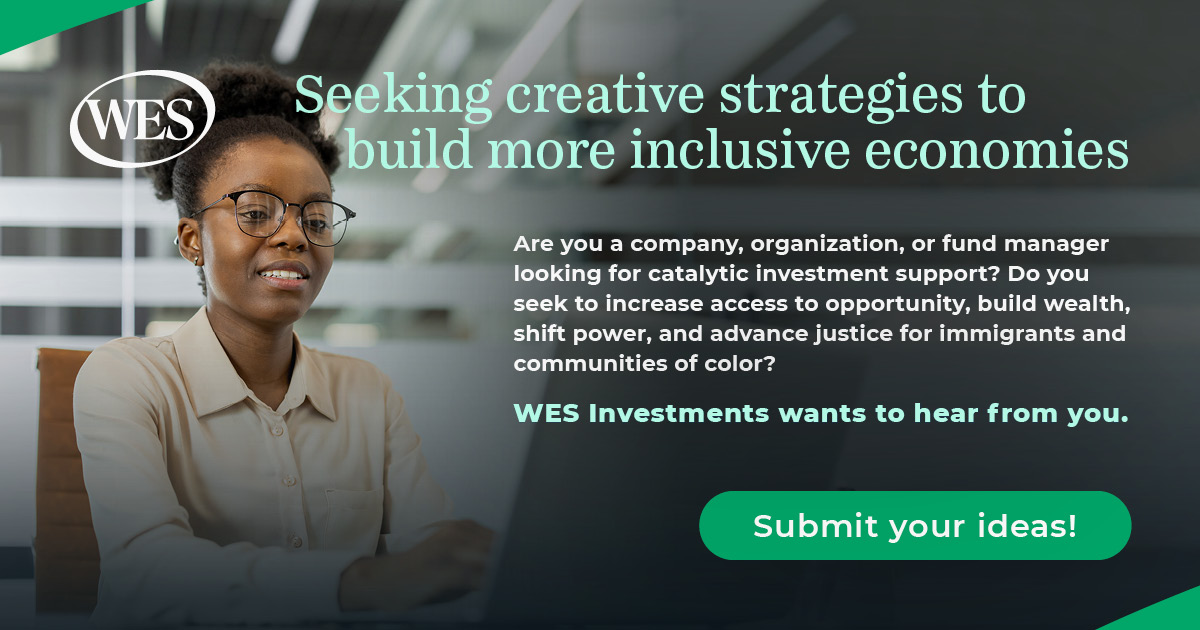Jenny Kassan is a business attorney, consultant, coach, and author of the recent book Raise Capital On Your Own Terms: How To Fund Your Business Without Selling Your Soul. Kassan has helped women-led and mission-driven enterprises raise millions of dollars in funding from a broad range of investors through creative equity and debt offerings. She has appeared as a panelist at several SOCAP and SOCAP 365 events and was recently featured in episode four of our Money + Meaning podcast. We talked to Kassan to hear her thoughts on venture capital, investment crowdfunding, challenges faced by women founders, and her call to action for impact investors.
SOCAP: You have frequently made the argument that the venture capital model is wrong for a majority of businesses, particularly so for woman-owned mission-driven businesses. Why do you believe this to be so?
Jenny Kassan: A majority of people in the finance space acknowledge that less than one percent of businesses really fit the venture capital model. Studies have shown that only .1% of businesses get venture capital funding, and it’s been very well documented that only a fraction of those businesses are led by women and people of color.
Even beyond that, the VC model is based on the idea that investors will push investees to grow just as fast as they possibly can with the goal of a big exit. Even in a very successful VC fund, nine out of ten businesses will fail because pushing businesses to grow that fast forces them beyond their capacity. Some of those failed businesses could have been successful if they had time to grow slowly and steadily. So the VC model itself actually causes failures. So even if you are in that .1% that gets venture capital funding, you will only have a 10% chance or less of making it.
And if you are mission driven that is another thing to consider before pursuing venture capital funding. For many investors who use the VC model, their number one goal is making as much money as possible. They may say they care about certain values and achieving certain missions. They may even call themselves impact investors, but the VC model itself is built on the idea that you have to make a huge return. That can often get in the way of a mission.
These are only a few reasons why VC funding is appropriate for only a very tiny group of businesses. If you are building an app and it is likely to be the next big thing, then maybe it is a good fit for you, but otherwise not. I think VC funding is overhyped, considering how few businesses it is actually appropriate for.
SOCAP: What alternative funding models do you suggest that social entrepreneurs consider?
There is a way of raising money called investment crowdfunding. You could also call it a public offering. That is a way of raising money where you can publicly advertise and anyone can invest. You can set the minimum as low as you want so it’s accessible to a lot of people. I’ve raised money that way three times. This is all highly regulated, so if you choose to go this route you do have to deal with some regulatory issues, but it is not that difficult. No matter how you raise money you are always going to deal with regulatory issues.
I really recommend that women in particular consider investment crowdfunding as a tool for raising money. Women led businesses are getting a tiny percentage of venture capital funding (women founders only got two percent of venture capital dollars in 2017), but with investment crowdfunding studies are showing that women are doing just as well, if not better than men. I experienced it myself.
It is just so much easier to raise money from a larger number of smaller investors instead of going after big chunks of money. Sometimes people ask, “isn’t it a hassle to have 100 or 200 or 1000 investors?” Not really. I’ve done it and many of my clients have done it. As long as you design it right it really isn’t a hassle. I’ve had hundreds of investors and I’ve never had a single one bother me or threaten to sue or anything like that. I think it is actually better when you spread the risk among a lot of people because each individual has only put in an amount that they can afford to lose. Whereas if you have one or two big investors, they are going to be breathing down your neck. So I want everyone, but women in particular, to really consider that as an option. It has gotten a lot easier over the last couple of years to do it. And I think it is way easier to have success with that and you can set your own terms.
SOCAP: Can you offer a piece of advice to women within the SOCAP community who are seeking capital to start or scale their social ventures?
Jenny Kassan: The first really important thing you want to do is decide the terms you want to accept investment on. Think about what kind of investment would be best for your particular business. What are your goals for the business? Do you want to sell it one day? Do you want to leave it to your kids? Do you want to sell it to your workers? How big do you want to grow it? Maybe you just want to keep it something small and local or maybe you want to take over the whole world. What is your vision? What kind of funding and what kind of relationship with your investors would most support your vision? Once you have the answers to these questions, then you design your own terms.
I just wrote an article called “Take Charge of the Investments in Your Business” (for Issue 19) of Conscious Company Magazine about how business owners should design their own terms instead of allowing investors to dictate the terms. There is an infinite number of ways that investors can get paid. There is an infinite number of legal documents you can create that will define your relationship with your investors. You should decide what you want that relationship to look like and then go out and find investors that are on board with your design.
For myself, as an investor I feel more confident investing in a business where the terms are not just cookie cutter terms, but terms that have been thoughtfully designed by the business owner to fit what that person thinks is most likely going to make the business succeed.
SOCAP: You run a program for women entrepreneurs. What are some of the most common fundraising challenges you hear about from women founders?
I run a year long program called “Women Raising the Right Money from the Right Investors.” We provide legal services, coaching, and strategy help to groups of really awesome women entrepreneurs who are raising money. When I first started doing this work twelve years ago, I was pretty oblivious to gender. I took whatever client came my way and helped them raise money. And I loved my clients. They were awesome and mission driven and everyone I worked with was able to meet their funding goals. But then one day I looked around and realized I had almost no women clients. I asked myself, What is going on here? That led me to look at what was happening with women entrepreneurs.
The first thing I realized is that it doesn’t even occur to a lot of women entrepreneurs to raise money. Many women feel the need to bootstrap and do everything on their own. Of course everything I am saying is a generalization and there are exceptions to every rule. But so many women have said to me, “I can do this. I don’t need any support or help.”
I’ve talked to women that told me they would consider it a failure on their part if they had to ask for funding. I tell them, “It’s not failure. It’s just that your vision is so big it needs funding!” How many successful businesses were started without any funding? But somehow a lot of women entrepreneurs have the idea that they have to do it all on their own without any kind of support.
Many women I’ve encountered think of investment as a form of charity. So many women I’ve talked to have actually used the word “donate” instead of “invest” when talking about asking for funding. I’ve told them, “No! You are offering them something of huge value! You are not begging for a hand out.” There are a lot of mindset issues that need to be addressed.
One thing I also hear a lot of women say is, “I can’t raise money–what if I don’t make it? What if I can’t meet my commitment to my investors? What if the business fails and I lose my investors’ money?” Yes. Of course that could happen. Any investment comes with risk. There are no guarantees in any investment, but that should not stop you from raising money. I always tell women who say these types of things, “the fact that you are so worried about that is exactly what makes you such a great investment! Because you care so much and you want to be such a good steward of your investors’ money.”
I’ve seen women have to get beyond limiting beliefs about money and what they deserve to have in order to get the support they need to grow their business. Many of my women clients aren’t paying themselves a salary and don’t feel that they deserve one. I always tell them, “in my program not only will you be raising money, but you’ll avoid having to pay for a lot of therapy because raising money is a huge personal growth process. You will grow a lot when you get over a lot of those personal hurdles and just go out and get the money.”
SOCAP: What call to action would you issue to impact investors within the SOCAP Community?
Be a little more open minded about the terms on which you’ll invest. Understand that if you are using venture capital style terms, that often builds in a lot of risk for the company. Because the whole VC model is built on the idea that most companies won’t make it.
Research done by the Kauffman Foundation showed that on average investors in VC funds make zero to negative return. That is another reason why I don’t understand why VC funding is so hyped up. Every now and then there is an amazing story from someone who made a lot of money, and that is what people pay attention to. But those stories are very unusual.
I wish more investors would see that there is another way. What if we got paid out of some of the profits on an annual basis? What if we got paid over time as the company was sold to the workers? There are just so many different ways that investors can get paid. So I wish investors would be a little more flexible. I know that requires more effort. They might need to hire a lawyer to help them understand the terms. It is so much easier to use the cookie cutter approach, using the same thing over and over. But I think in the long run you are going to make more money and have more successful investees if you are more flexible about the terms and actually have the investee design the terms. Because the investee actually knows what makes the most sense.
Learn More
Entrepreneurs: Jenny Kassan offers an introductory program online: Escape the Bootstrap Trap: the 30 Day Challenge.
Listen
Listen to Jenny Kassan in episode four of our new podcast series, Money + Meaning: Unlikely Allies Building New Markets for Impact. In this episode, recorded live at a SOCAP 365 event in San Francisco, Kassan appeared along with Rodney Foxworth of BALLE, Ted Levinson of Beneficial Returns, and Aner Ben-Ami of Candide Group to discuss the topic of Unusual Investments – Breaking the Mold for Raising and Investing Capital.
Meet Jenny Kassan at her Upcoming Events
Crowdfund Main Street Launch Party in Oakland, August 24, 2018.
Fund and Fuel Your Dreams in Baltimore, October 18-20, 2018





